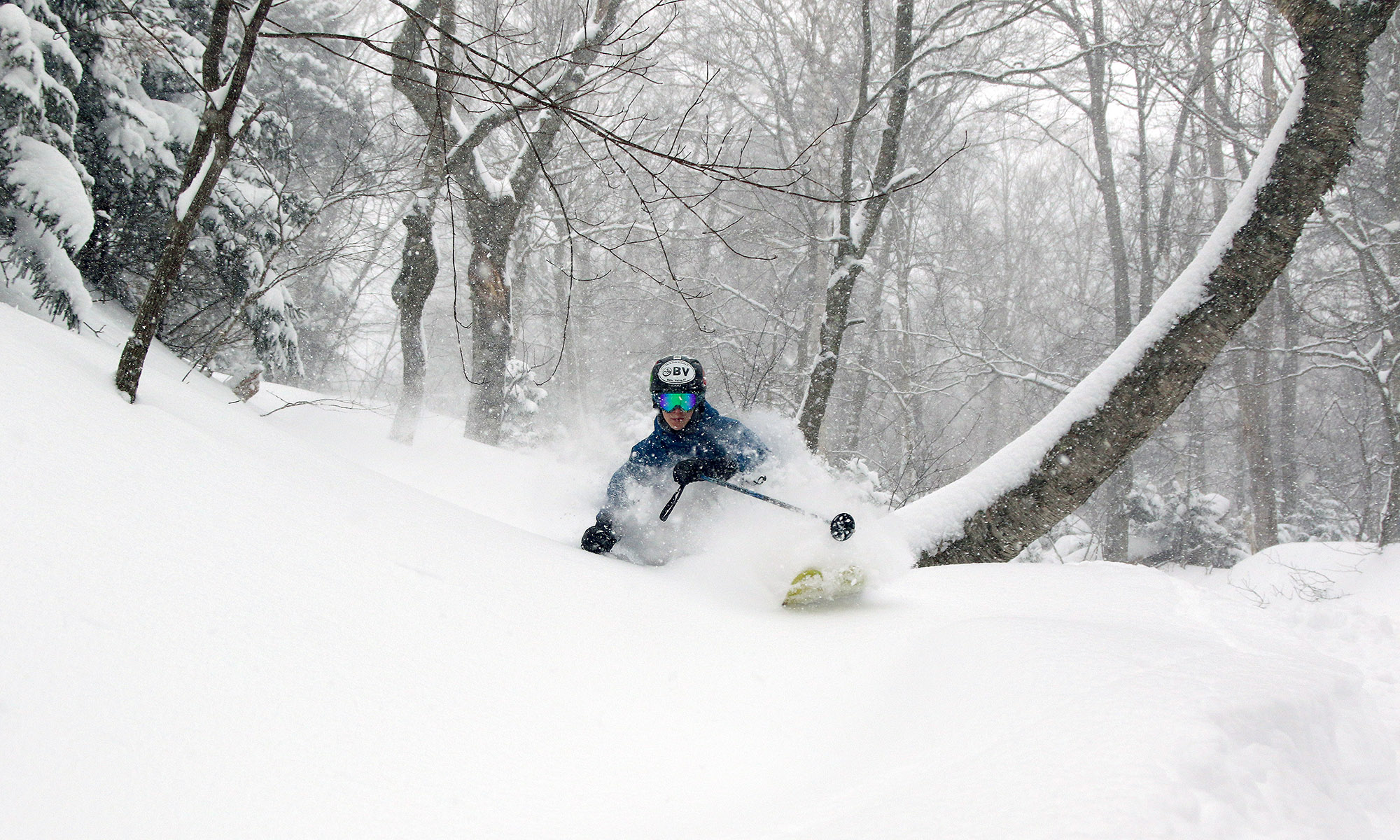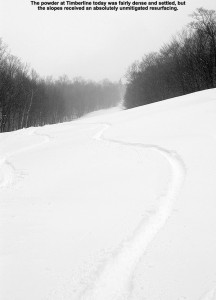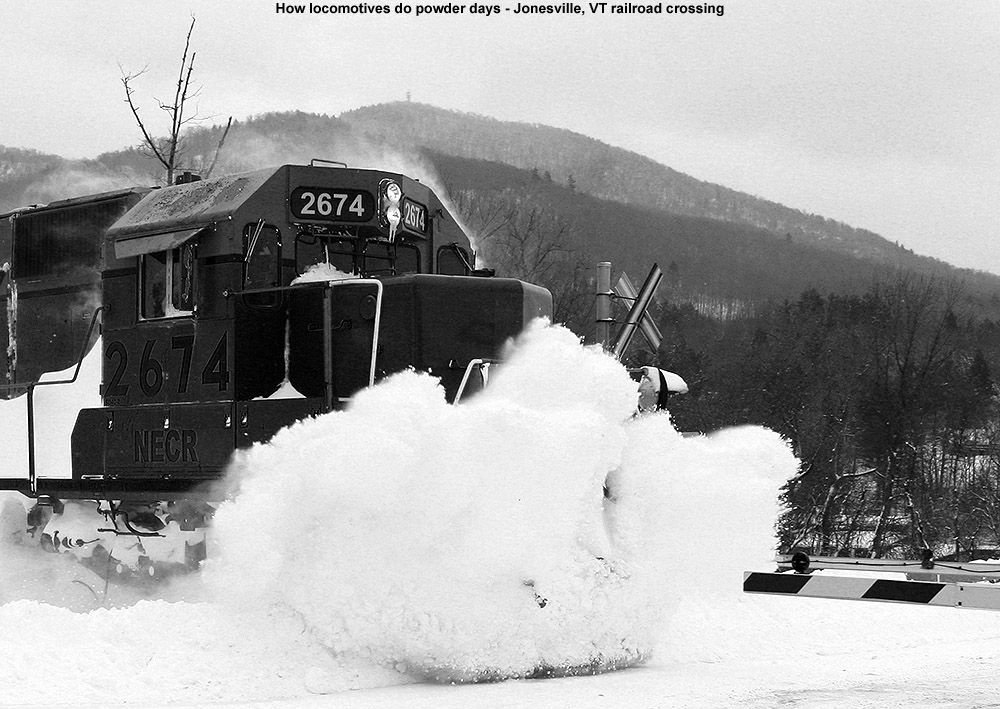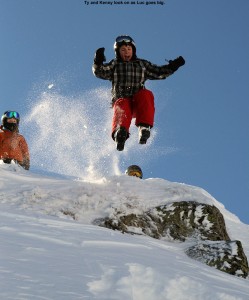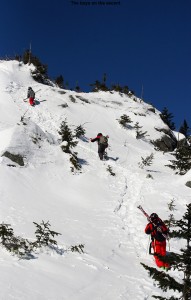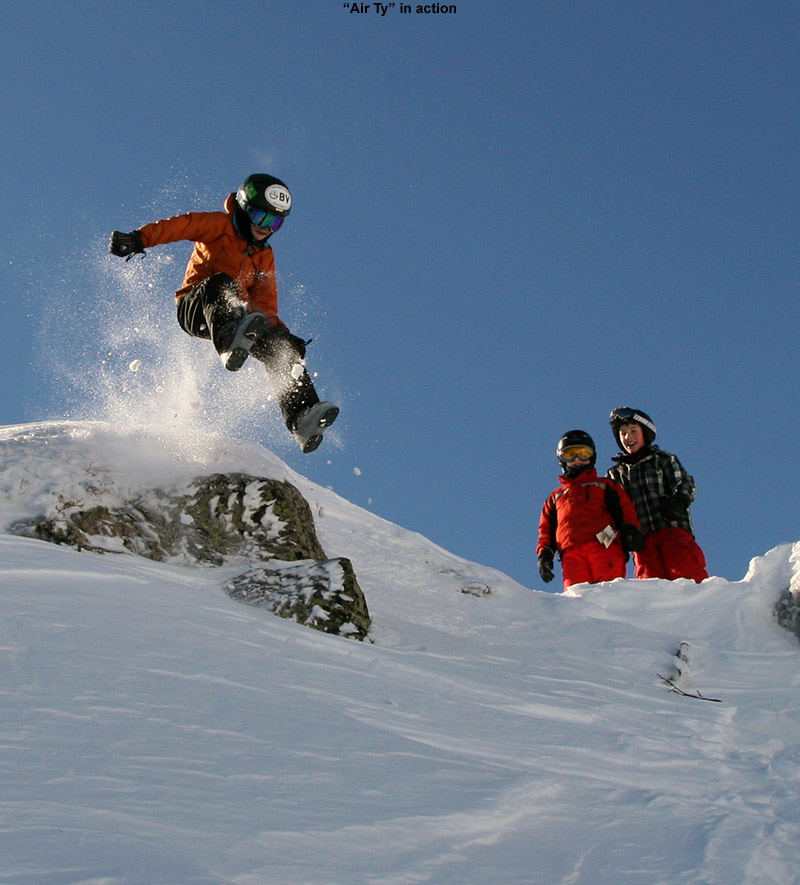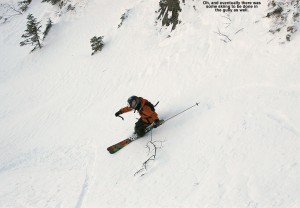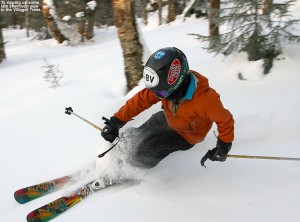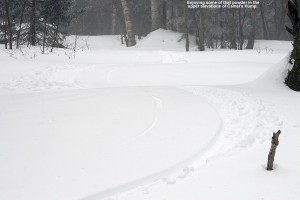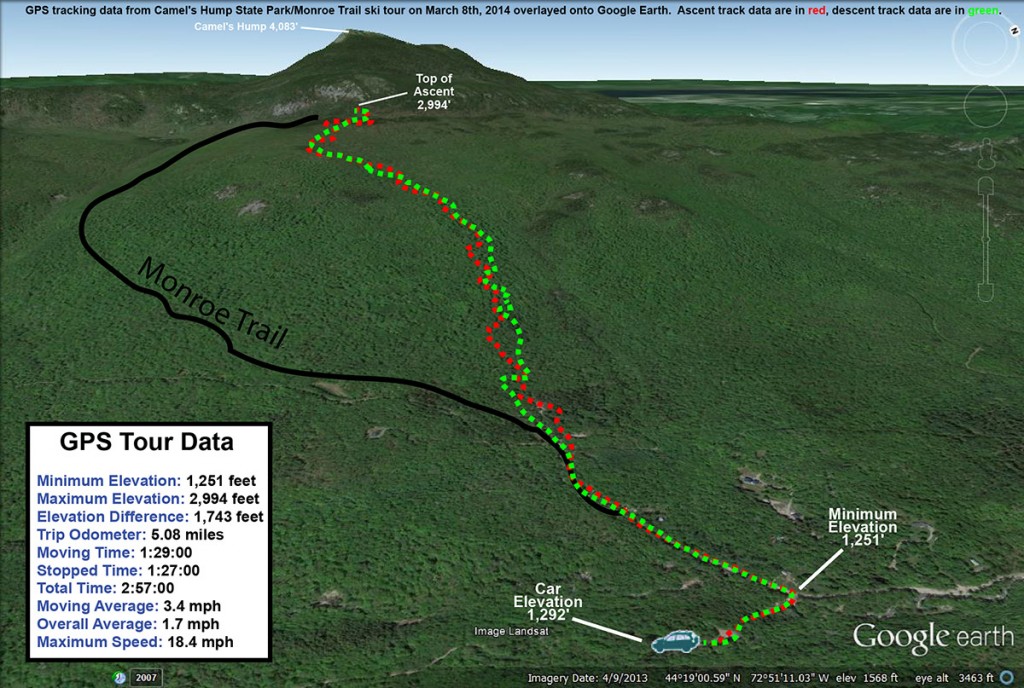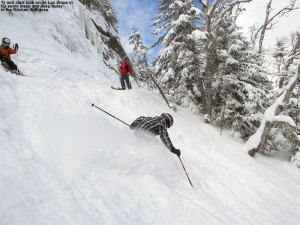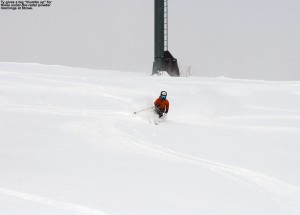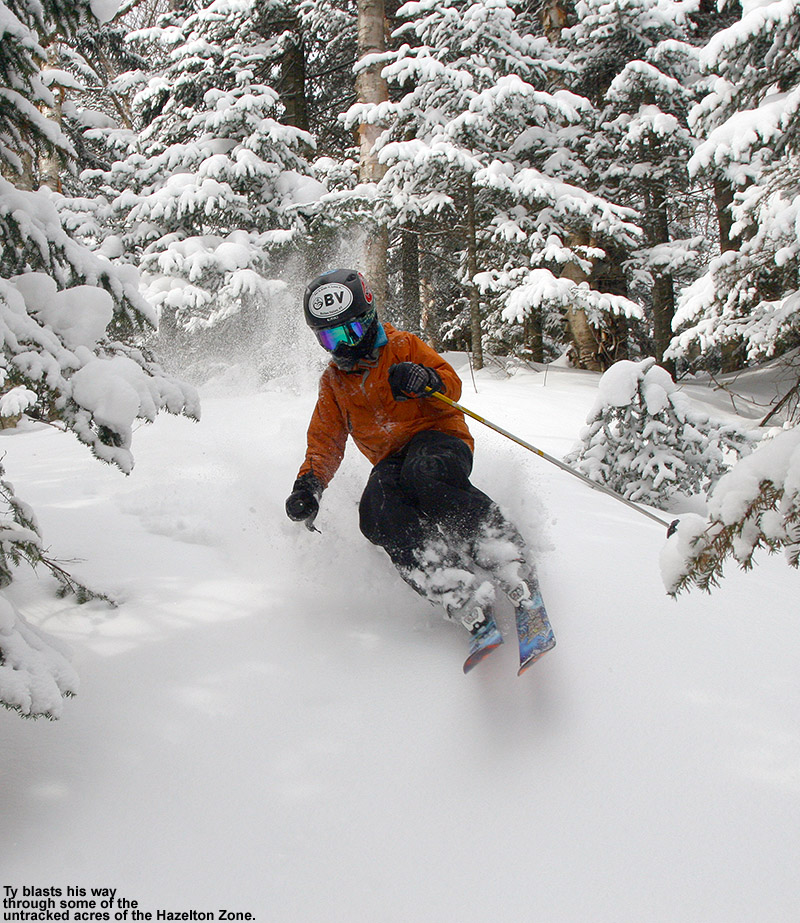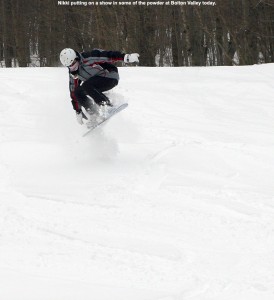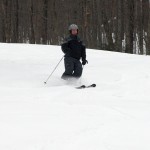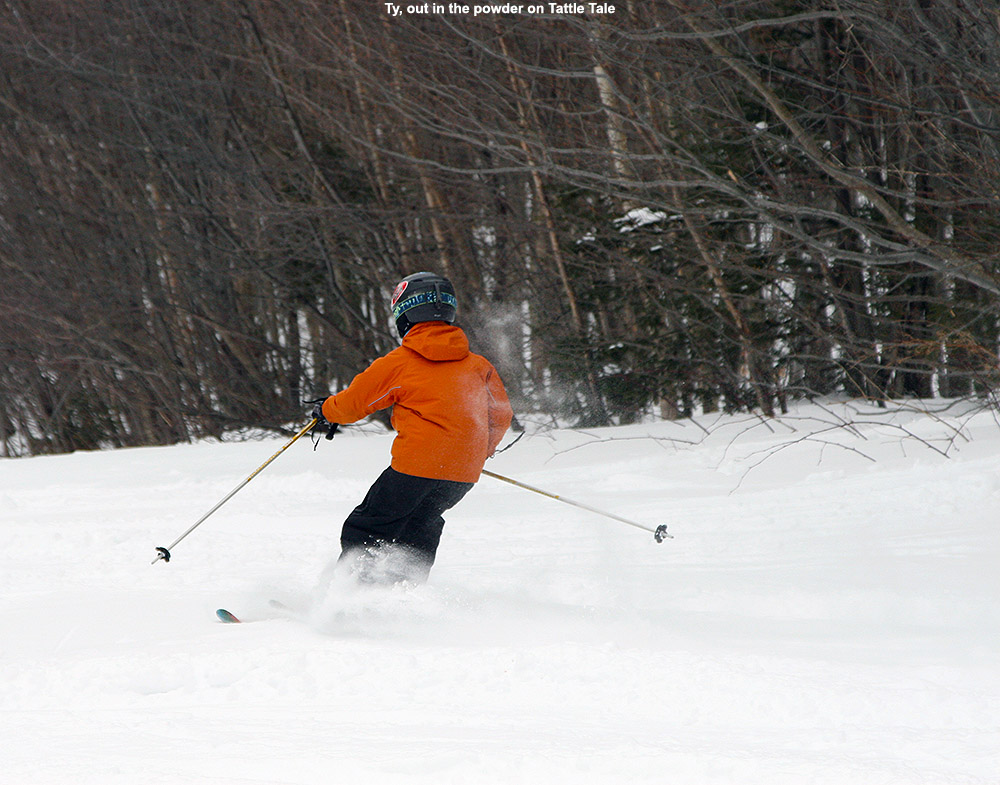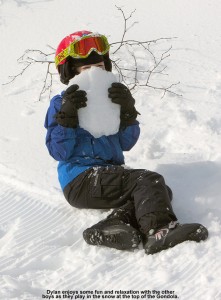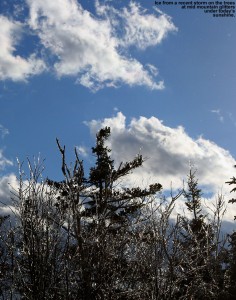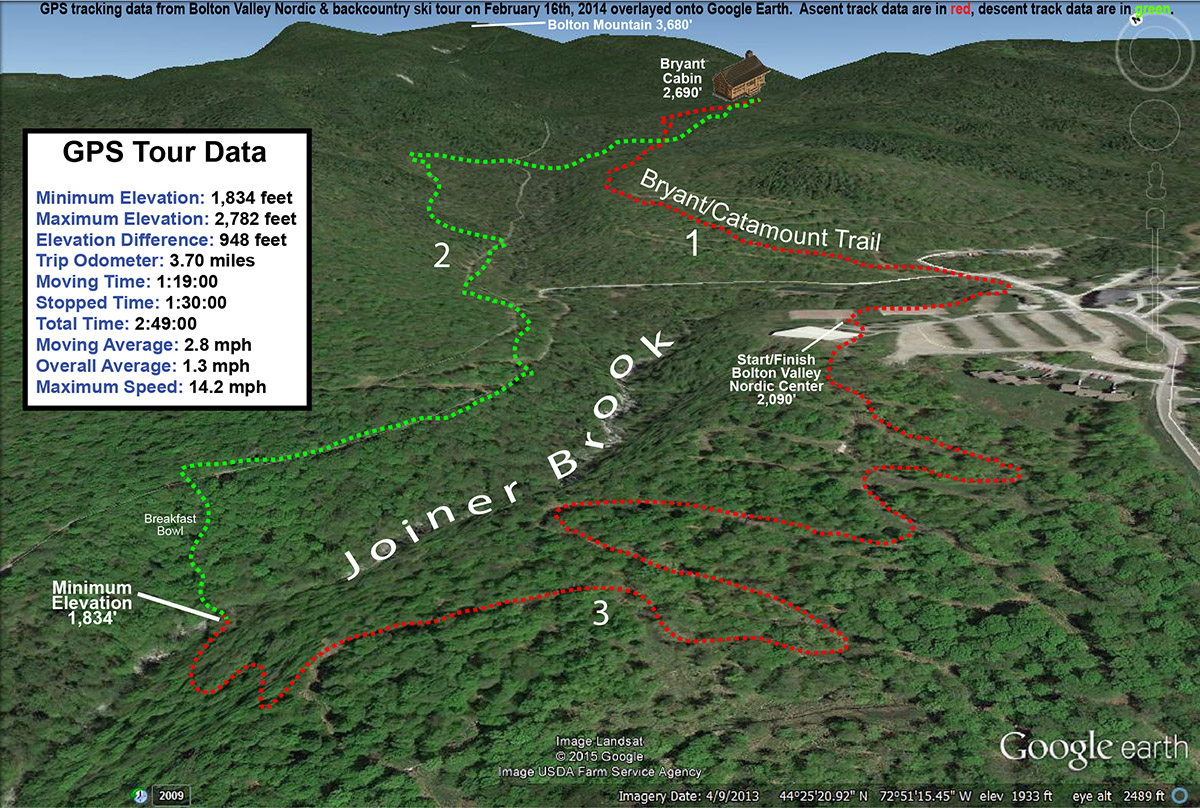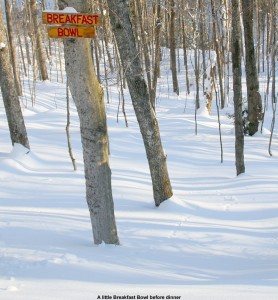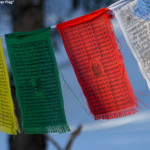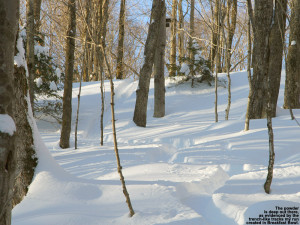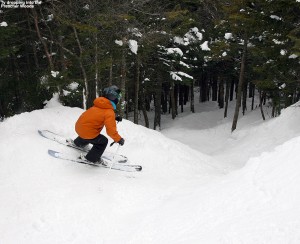
It was already obvious from my outing on Thursday at Bolton Valley that the snow from Winter Storm Vulcan had fallen in a fairly dense state in this area. It hadn’t been warm during the storm, but snow growth just hadn’t been all that great around here, and the small flakes packed together to produce snow in the 10-11% H2O range. When combined with some wind, the snow had definitely been settled, and that was already evident even though I was skiing while the storm was still finishing up. And of course, snow generally just gets denser over time, so with temperatures predicted to be in the 30s F today, we weren’t expecting light and dry powder everywhere.
“…Vulcan dropped what was
likely close to two inches
of liquid equivalent in the
mountains in the form of
snow, so we knew that the
mountain had received a
full resurfacing.”
Although we weren’t expecting feathery, “Champagne Powder®” on the slopes today, Vulcan dropped what was likely close to two inches of liquid equivalent in the mountains in the form of snow, so we knew that the mountain had received a full resurfacing. That meant it was a perfect time to hit all the steep terrain that just hasn’t been well covered yet this season. Because we’re still waiting on Dylan’s physician to give him the go ahead for doing the most vigorous activities, such as skiing, Dylan and E planned to go swimming in the Bolton Valley Sports Center, while Ty and I planned to ski.
E dropped Ty and I off over at the base of Wilderness, and for me, it was quite a treat to get the chauffeur service that the rest of the family usually has. We found out that the Wilderness Double Chair was still on wind hold though, so we headed up to the Vista Quad for a run. Our first stop on the steep terrain tour was the Preacher Woods. The coverage there is definitely sufficient now, even up in the big open areas with multiple ledges. There are still some aspects of the ledges that one needs to dodge here and there, but when the terrain is small cliffs, that’s often the way it’s going to be. The snow was packed, and the untracked powder was sort of thick and dense, but the skiing up there was really pretty decent. There just wasn’t any fluff factor to speak of, so things felt very “settled”. It was really just fun to take virtually any line and not worry about coverage around the next corner; we’ve been waiting for a while to get to that stage this season. Our run brought us down through the Cobrass Woods, and then Deer Path, and finally the Bear Run Woods. The lower half of the mountain had warmer temperatures and snow that was somewhat wet, so that made it a bit more challenging. I’d brought my fat skis, and while I liked them a lot in the dense powder and chowder up high, I was less than thrilled with them on the more packed snow in the lower elevations.
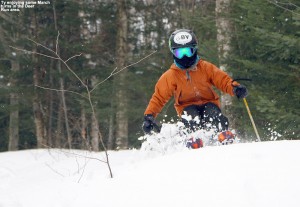
When we arrived back at the base, we found a big lift queue at the Vista Quad, and a similar queue at the Snowflake Chair. The Wilderness Chair was still on wind hold, so we decided to go for a run off the Mid Mountain Lift to get ourselves over to Timberline. We used Deer Run to get there, and Ty had an excellent crash in some of the powder that appeared to be to the amusement of some of the little kids in one of the ski programs. As we headed lower and lower in elevation over toward Timberline, the snow got wetter and wetter, and we could tell that it was really getting warm down in those lowest elevations. We encountered a huge queue at Timberline, probably because of other people that had left the main mountain to find shorter lift queues, but after seeing the drop in snow quality down low, I bet many of them headed back to the relative cool of the main mountain. I took Ty down the steep terrain of Lost Girlz, followed by Thundergoat Pass. We generally skipped the untracked powder down at Timberline, as it was just getting too dense and challenging. The partially tracked up snow was much easier to ski.
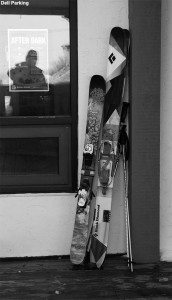
We made our way back to the main mountain after that, and finding that Wilderness still wasn’t open and there were substantial queues at the other lifts, we decided it was time for lunch. I called down to E and Dylan, and we met them for lunch at the Deli. I suspected that with all the patrons the resort had today, the lodge would be quite packed, and even the usually very quiet deli was hopping, so it was definitely a busy one out there. I actually think it’s interesting that so many people would come out after President’s Day, but Vulcan was a big storm and it caught a lot of people’s attention. After lunch, Ty headed down for some swimming with E and Dylan, and I contemplated another run or two. Finding the lift queues still fairly substantial, I decided to just call it a day. The skiing certainly wasn’t phenomenal enough that it warranted waiting in lift queues, especially since the snowfall was picking up and the possibilities for tomorrow were looking decent with cooler temperatures. I toured around the Village a bit and got some pictures, returned the pizza pans that Fireside Flatbread had lent us when we ordered pizza last Saturday, and finally worked my way down to the Sports Center. I worked on a jigsaw puzzle that was out in the recreation room while I waited for the others to finish swimming, and when they arrived, the battle was joined in a game of foosball. I forget how much fun stuff there is to do down at the Sports Center – we don’t visit to often because we’re usually headed home after skiing, but we’ll have to remember that there’s a lot more than just swimming.
